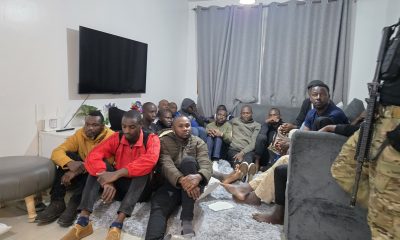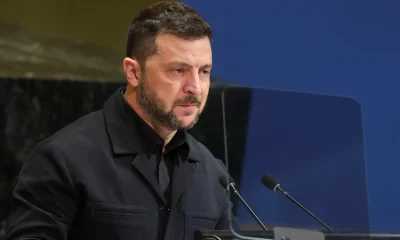News
Kenya Investigating Trafficking of Citizens to Fight for Russia in Ukraine War
Many were lured by social media advertisements promising free travel, accommodation, and lucrative employment.
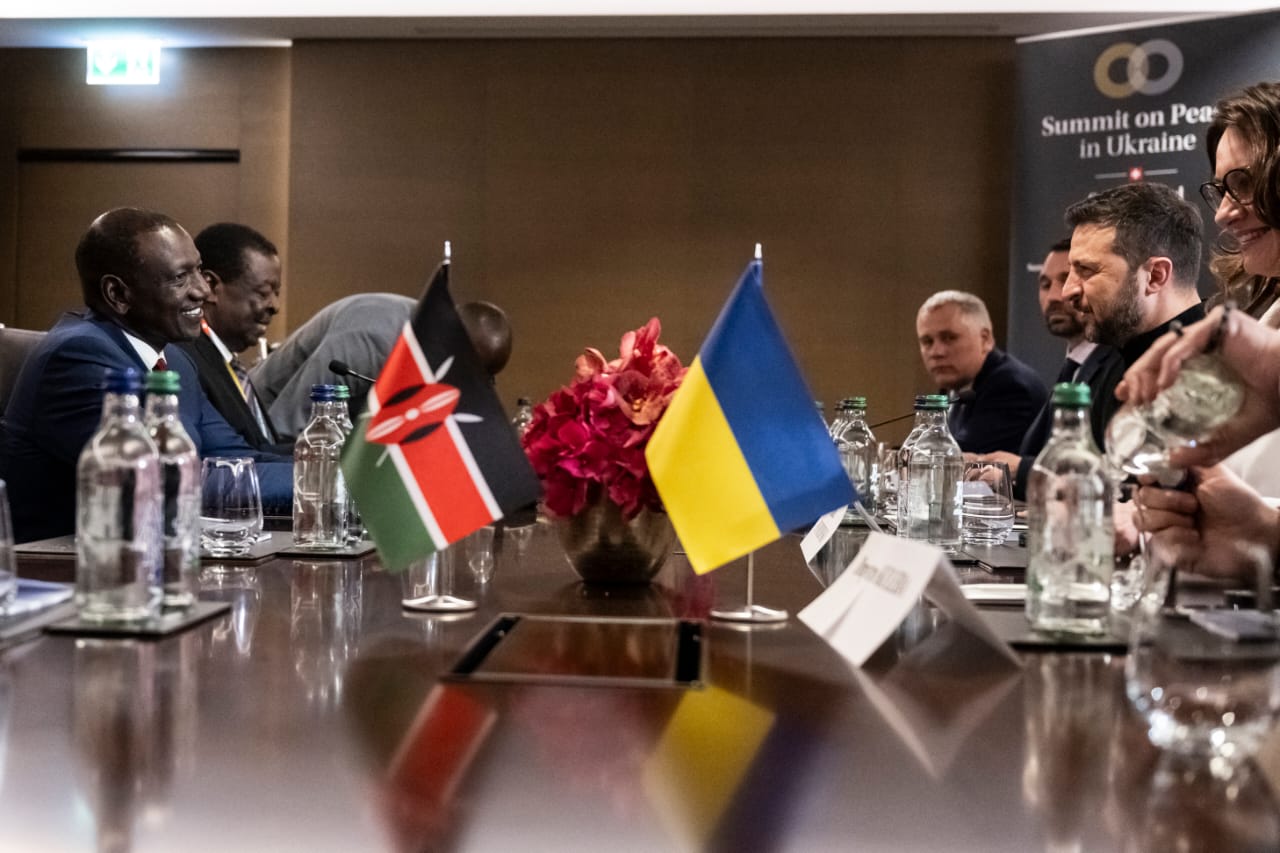
NAIROBI, Kenya — The Kenyan government has launched an investigation into reports that several of its citizens have been trafficked to Russia and coerced into fighting in the war against Ukraine, officials confirmed this week.
The probe follows the high-profile capture of Evans Kibet, a 36-year-old Kenyan athlete who surrendered to Ukrainian forces in the Kharkiv region after what he described as being tricked into joining the Russian military while visiting the country as a tourist.
Foreign Affairs Principal Secretary Korir Sing’oei said authorities are examining at least four cases of Kenyans allegedly caught up in the conflict.
“We are keenly following information on three or four Kenyans allegedly trafficked to Russia and currently held as prisoners of war by Ukraine,” Sing’oei said in a statement.
“Our mission in Moscow and our teams at headquarters are pursuing the matter with all diligence.”
Kibet’s case has exposed what appears to be a broader pattern of deception targeting young Africans seeking opportunities abroad.
In a video released by Ukrainian forces, Kibet recounted how his two-week tourist visit to Russia turned into a nightmare when a contact person offered to help extend his expired visa and find him employment.
“He came in the evening with documents written in Russian. I didn’t know it was a military job,” Kibet said in the interview. “He told me to sign and took my passport and phone, and that’s when everything went wrong.”
After signing documents he could not read, Kibet said unknown individuals transported him seven hours to a military camp, where he was told: “You already signed the documents; you cannot go back. You either serve or get killed.”
Following just one week of training, he was deployed to the front lines.
The case highlights concerns about the exploitation of foreign nationals in Russia’s war effort.
According to research by the Global Initiative Against Transnational Organized Crime, hundreds of young people from across Africa have been recruited to work in Russia’s defense industry, often under false pretenses.
The report identified the Alabuga Special Economic Zone in Russia’s Tatarstan region as a hub for recruiting African students and workers, particularly young women aged 18 to 22, to work in drone manufacturing facilities supporting the war effort.
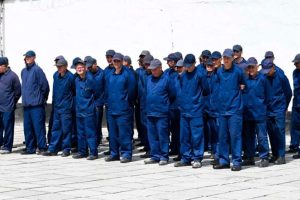
Prisoners of war stand in formation inside a Ukrainian detention facility where foreign fighters are held under strict supervision as part of wartime operations linked to the ongoing Russia-Ukraine conflict.
Many were lured by social media advertisements promising free travel, accommodation, and lucrative employment.
Between 35,000 and 37,000 African students are currently studying in Russia through various scholarship programs, according to British media reports, creating a large pool of potential recruits for unscrupulous agents.
Kenya’s Ministry of Education posted advertisements for Russian scholarships as recently as June 2024, though officials said there are no confirmed cases of Kenyans joining the military through official scholarship programs.
The trafficking appears to follow established patterns seen across Africa and Asia.
In May 2024, Indian authorities arrested four men believed to be brokers using scholarships and job placements to lure people into fighting for Russia.
The government of Togo has issued similar warnings to its citizens about fraudulent Russian opportunities.
For families back home, the revelations have been devastating. Kibet’s relatives expressed shock at seeing him in military fatigues in the Ukrainian-released video, never imagining their loved one would become entangled in a distant war.
Ukrainian officials say diplomatic efforts are underway to secure the release of foreign prisoners of war, including several Africans now held in detention facilities.
However, these individuals remain in a precarious position as Russia’s negotiating priorities appear focused primarily on securing the release of its own citizens.
Maksym Subkh, Ukraine’s special representative for the Middle East, confirmed that African nationals are among foreign prisoners of war and said Ukraine has notified relevant countries of their capture.
“We filed negotiations with the other side, based on the legal framework that we had with the United States,” he said, noting that additional agreements may be required for repatriation.
The Kenyan government has not yet provided details about the identities of other citizens believed to be involved or how they ended up in the conflict zone.
Officials said they are working through diplomatic channels and promised to provide additional information as the investigation proceeds.
The cases underscore the vulnerability of young people from developing countries seeking opportunities abroad, often falling prey to sophisticated schemes that exploit their desperation for better economic prospects.
What begins as hope for education or employment can quickly transform into exploitation in one of the world’s most dangerous conflict zones.
As the investigation continues, Kenyan authorities face the challenge of protecting citizens from such schemes while working to secure the release of those already trapped in Ukraine’s prisoner-of-war camps, far from the opportunities they thought they were seeking.
Kenya Insights allows guest blogging, if you want to be published on Kenya’s most authoritative and accurate blog, have an expose, news TIPS, story angles, human interest stories, drop us an email on [email protected] or via Telegram
-

 Business4 days ago
Business4 days agoKakuzi Investors Face Massive Loss as Land Commission Drops Bombshell Order to Surrender Quarter of Productive Estate
-
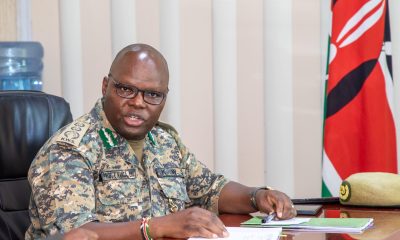
 Investigations5 days ago
Investigations5 days agoINSIDER LEAK REVEALS ROT AT KWS TOP EXECUTIVES
-

 Investigations2 weeks ago
Investigations2 weeks agoPeter Agoro Legal Battles Reveal How EACC Framed a Whistleblower to Protect Corrupt Elites
-
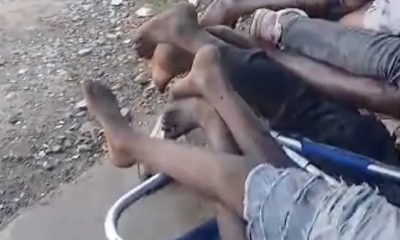
 Investigations2 days ago
Investigations2 days agoCNN Reveals Massive Killings, Secret Graves In Tanzania and Coverup By the Govt
-

 Politics2 weeks ago
Politics2 weeks agoRuto Set to Dominate ODM@20 in Mombasa, Positioning Himself as Raila Odinga’s Political Heir Ahead of 2027
-

 Business5 days ago
Business5 days agoBANKS BETRAYAL: How Equity Bank Allegedly Helped Thieves Loot Sh10 Million From Family’s Savings in Lightning Fast Court Scam
-
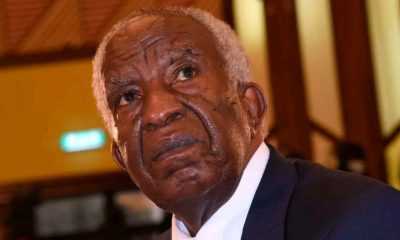
 News6 days ago
News6 days agoEXPOSED: How Tycoon Munga, State Officials, Chinese Firm Stalled A Sh3.9 Trillion Coal Treasure In Kitui
-
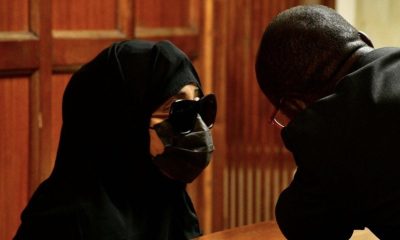
 News5 days ago
News5 days agoEx-Boyfriend Withdraws Explosive Petition to Remove DPP After Criminal Case Against Capital FM Boss Resurfaces




